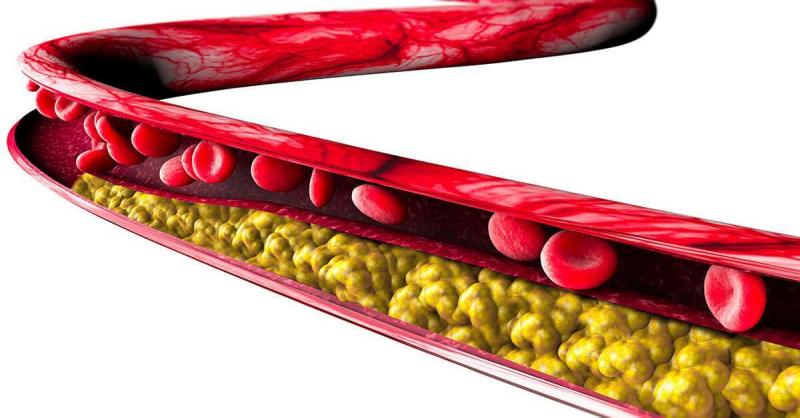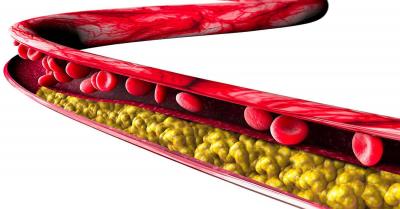Cholesterol is known to have harmful effects, but it is essential for the body's health. In fact, the liver produces cholesterol, which the body uses in various ways, such as hormone production. However, consuming too much of certain types of fats—saturated and trans fats, for example, found in fatty meats and fried foods—can raise levels of bad cholesterol. According to the American Heart Association, "bad" cholesterol can accumulate in the arteries, increasing the risk of heart disease and stroke. A report published by "EatingWell" indicates that reducing sources of saturated and trans fats is crucial for bringing blood cholesterol levels into the correct range. However, there is another side; several heart-healthy fats can improve cholesterol levels, either by lowering LDL or raising good HDL cholesterol (or both). These are unsaturated fats, which include monounsaturated and polyunsaturated fatty acids. Nutrition expert Maria Laura Haddad Garcia states, "Monounsaturated and polyunsaturated fats are found in a wide range of foods, from animal foods such as fish and seafood to plant foods like nuts and seeds, to name a few."
**Top 5 Fat Sources**
Research shows that there are foods containing unsaturated fatty acids that can help lower bad cholesterol levels in the blood, including the following:
1. **Pistachios**
An analytical study in 2021, which included 12 randomized trials and was published in the journal "Food Science and Nutrition," found that consuming pistachios for about 12 weeks reduced total cholesterol by 7 points and lowered LDL cholesterol by 4 points, with a decrease in triglycerides as well. Consuming less than 30 grams daily improves the breakdown of fatty acids in the body, and they contain specific nutrients like vitamin E, antioxidants, and potassium that may reduce inflammation, thus improving vascular function. Pistachios also contain phytosterols, plant compounds known for their cholesterol-lowering ability.
2. **Flaxseeds**
According to a clinical trial conducted in 2022 and published in the journal "Explore," adults with high blood pressure who consumed about 30 grams of flaxseeds daily for 12 weeks experienced a reduction in systolic blood pressure (the top number in a blood pressure reading) by 13 points. The total cholesterol levels in those who consumed flaxseeds decreased by more than 20 points. According to the American Heart Association, managing blood cholesterol levels if a person has high blood pressure is a smart goal because plaque deposits in the arteries that accumulate over time result in elevated cholesterol, making it harder to pump blood through the vessels, which leads to high blood pressure.
3. **Avocados**
According to data from the Centers for Disease Control and Prevention (CDC), higher levels of HDL cholesterol can improve heart health, as it removes harmful LDL cholesterol from the arteries and returns it to the liver, where it is broken down and excreted from the body. Adding avocados to meals can be beneficial, as the results of an analytical study published in 2018 in the American Journal of Clinical Nutrition found that consuming avocados boosted HDL cholesterol levels, since they are rich in plant sterols, fiber, and monounsaturated fats, which may work together to raise good cholesterol levels.
4. **Vegetable Oils**
Garcia states that it is commonly thought that the only healthy vegetable oil is olive oil, but research shows that other vegetable oils like avocado, sesame, peanut, and canola can support heart health. She explains that vegetable oils rich in antioxidants control cholesterol and plant sterols lower bad LDL cholesterol and triglyceride levels.
5. **Fatty Fish**
Consuming about 250 grams of fatty fish weekly provides better cholesterol levels, including a good level of HDL cholesterol, which may reduce the risk of cardiovascular diseases, according to research published in 2020 in the British Journal of Nutrition. Fatty fish contain omega-3 fatty acids, which can help reduce inflammation and blood pressure, as well as lower the risk of blood clots. Fatty fish include sardines and salmon.
**Other Tips**
The American Heart Association advises that if a person has high cholesterol, lifestyle changes and medical treatment can go a long way in helping to bring cholesterol levels back into the healthy range, as follows:
- Follow a heart-healthy diet, including sources of unsaturated fats along with fruits, vegetables, whole grains, lean meats (such as chicken, turkey, and fish), nuts, seeds, and legumes.
- Exercise as it boosts protective HDL levels.
- Stop using traditional and electronic forms of smoking.
- Maintain a healthy weight; losing a small amount of weight—5% to 10% of current body weight—can make a difference.
- Adhere to prescribed medications if the treating doctor deems it necessary.




